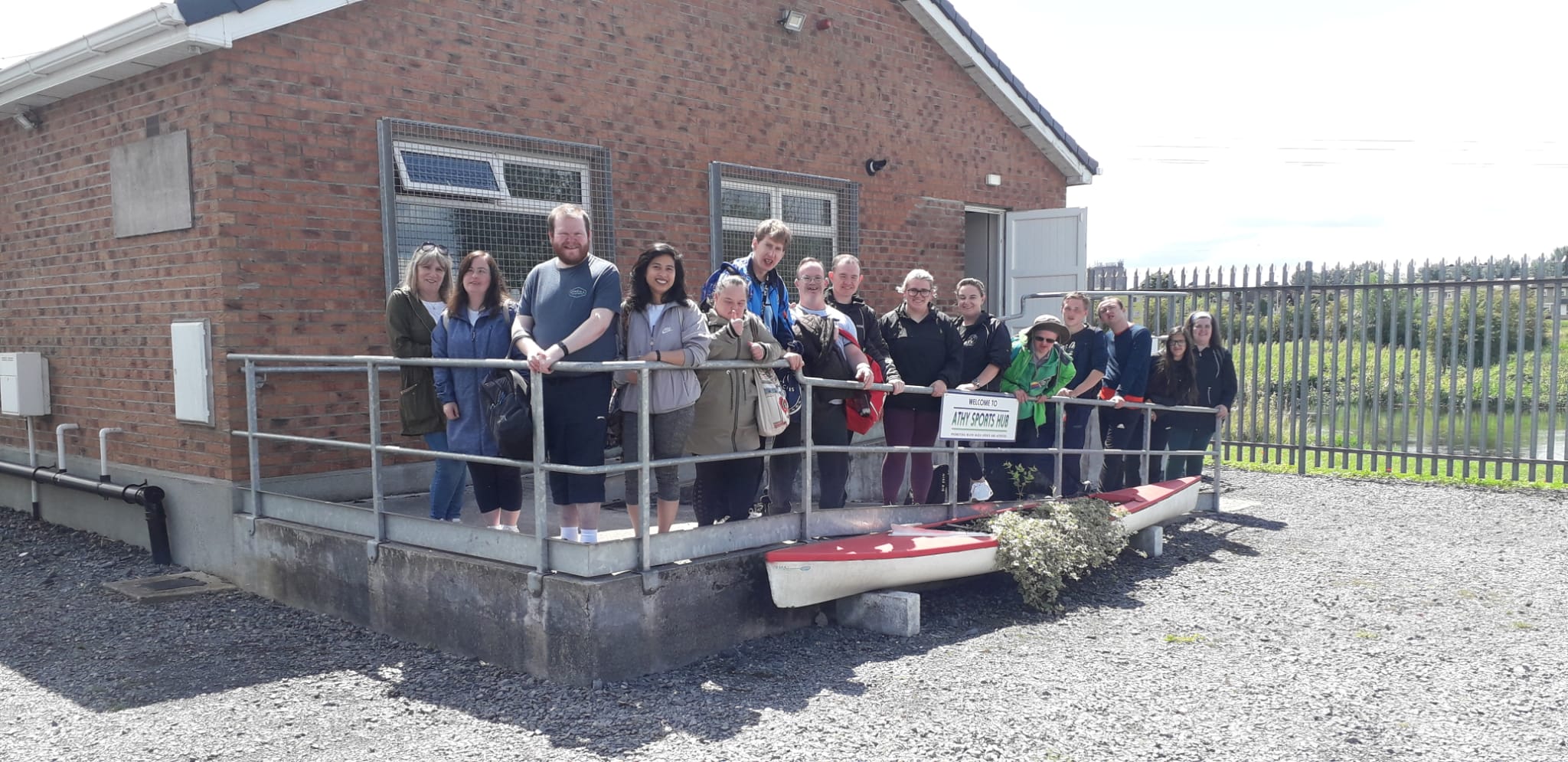SICAP – Supporting Individuals: Young People have a great day at Athy Dragon Boat Experience
On a memorable, wet and blustery Tuesday, 11th July, SICAP Employment Support Workers, Mary Byrne and Anthony Moyles, organised an outdoor Dragonboat Experience in Athy, bringing together participants from The LEAP Project and KARE Project Search Group.
During this invigorating team-building exercise, the participants not only honed their teamwork skills but also experienced the sheer joy of rowing together harmoniously. Laughter and camaraderie filled the air as they embraced the challenges and triumphs that came with navigating the waters as a cohesive unit.
Despite encountering numerous rain showers throughout the day, the participants displayed remarkable resilience, refusing to let the weather dampen their spirits. Their unwavering determination added an extra layer of accomplishment to the experience, making it all the more special.
In light of the seamless organisation and success of the event, Mary and Anthony extend their thanks and appreciation to Majella from Kildare Sports Partnership. Majella’s support was instrumental in ensuring that the day unfolded flawlessly, leaving indelible memories for everyone involved.
Saint John of Gods Liffey Day Services – The LEAP Project can be contacted:
Liffey Services homepage
To experience the Dragonboats and Book Your Place here: Athy Dragonboat Experience
All About SICAP:
The Social Inclusion and Community Activation Programme (SICAP) 2018 – 2023 provides funding to tackle poverty and social exclusion through local engagement and partnerships between disadvantaged individuals, community organisations and public sector agencies.
Administered by Pobal, the Social Inclusion and Community Activation Programme (SICAP) is co-funded by the Irish Government, through the Department of Rural and Community Development, and the European Social Fund Plus under the Employment, Inclusion, Skills and Training (EIST) Programme 2021 -2027.
SICAP addresses high and persistent levels of deprivation through targeted and innovative, locally-led approaches. It supports disadvantaged communities and individuals including unemployed people, people living in deprived areas, people with disabilities, single-parent families, people on a low income, members of the Traveller and Roma community and other disadvantaged groups.

